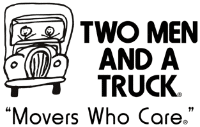How much to tip movers can vary based on many different factors. Moving can be a stressful time, and your movers are there to make it easier by handling the heavy lifting, packing, and organization. But once the job is done, you might be wondering, “How much should I tip them?” Tipping your movers isn’t always straightforward, so this guide covers what you need to know about tipping to show appreciation while staying within your budget.
When You Need to Tip vs. When You Don’t Need to Tip
Tipping movers is generally encouraged, but it’s not always required. Knowing when it’s appropriate to tip, as well as when it might not be necessary, can help you make an informed decision about tipping.
When You Should Tip Your Movers
Movers perform physically demanding work to make your moving experience easier, and tipping is a way to recognize their effort. Here are some common situations where tipping is generally expected:
- Professionalism and Hard Work: If your movers are polite, handle your items with care, and complete the job efficiently, a tip is well-deserved.
- Heavy Lifting and Extra Labor: Moving bulky, difficult, or fragile items (like pianos, antique furniture, or large appliances) takes skill and care. When movers go the extra mile to ensure everything is transported safely, it’s customary to show appreciation.
- Hot, Cold, or Bad Weather: Working in extreme temperatures or rainy, snowy conditions can be difficult and challenging for movers. Tipping acknowledges their effort to complete the move, despite tough conditions.
- Helping with Unexpected Issues: Sometimes moves come with unexpected challenges, like navigating narrow hallways, extra stairs, or tricky entrances. Movers who handle these situations professionally deserve a tip for their adaptability and problem-solving.
Tipping is an appreciated gesture that rewards movers for handling difficult tasks with care and respect. It’s also a way to say thank you for their dedication to making your move as smooth as possible.
When You May Not Need to Tip Your Movers
In some situations, tipping isn’t required. Here are a few instances where tipping may not be expected:
- Poor Service or Damage: If the movers are careless, damage items, or disrespectful, you may decide not to tip. Tipping is meant for showing appreciation, so if the service does not meet expectations, a tip isn’t necessary.
- Flat-Rate Service: Some moving companies include gratuity in the overall cost, meaning movers have already received compensation beyond their standard pay. If you’re unsure whether the gratuity is included, you can check with the company ahead of time.
- Company Policy: While it’s rare, some moving companies have policies that discourage or prevent employees from accepting tips. In this case, you don’t need to tip unless there’s an alternative option provided by the company
Why Tipping Matters
Movers work long hours, perform challenging physical labor, and often handle tasks that require skill and care. While movers are paid an hourly or flat rate, tipping goes beyond their paycheck by acknowledging the effort and personal care they bring to each job. Tipping is a way to thank movers for their professionalism, respect, and hard work.
Ultimately, tipping isn’t required, but it’s a meaningful way to show appreciation when movers go above and beyond. By understanding when tipping is expected and how much to tip movers, you can make an informed decision and ensure a positive experience for everyone involved.
How Much to Tip Movers
The general rule for tipping movers is to give around 5-10% of the total moving cost. This amount can depend on the size and complexity of the move. For example:
- Small Moves (such as a studio or one-bedroom): A tip of $20-$30 per mover
- Medium Moves (such as two to three bedrooms): A tip of $40-$50 per mover
- Large Moves (such as four bedrooms or more): A tip of $50-$80 per mover
If your move is extra complicated, like moving large furniture up several flights of stairs or dealing with bad weather, you might want to consider tipping on the higher end. Movers who go above and beyond to ensure your belongings are safely transported also deserve a little extra.
Per Hour or Per Day Rates
If your movers are hired at an hourly rate or work over multiple days, you might consider tipping based on the time they’ve put in. Here are some helpful guidelines:
- Per Hour: For a short move that takes just a few hours, consider tipping each mover $5-$10 per hour. If your movers work longer hours, you can adjust accordingly. For example, if the job takes six hours, a $30-$60 tip per mover is reasonable.
- Per Day: For moves that require an entire day, a tip of $50-$80 per mover per day is a good rule of thumb. If the move takes multiple days, tipping that amount each day can show your appreciation without overextending your budget.
Choosing a per-hour or per-day approach to tipping can be useful for longer or more complicated moves.
When to Give Your Tip
It’s customary to tip movers at the end of the job. This way, you can evaluate the quality of their work before tipping. Waiting until the end of the move also makes it easier to decide how much you want to give, especially if there were any unexpected surprises along the way. When the job is complete, simply thank each mover and hand them their tip directly.
Cash vs. Other Methods of Tipping
Cash is the most common (and most appreciated) way to tip movers, but there are a few other options. If cash isn’t convenient, here are some alternatives:
- Digital Payment Apps: Many people now use apps like Venmo, CashApp, or PayPal to tip movers. Just make sure to ask your movers if they have accounts on these platforms.
- Company Policies: Some moving companies have policies about tipping through their payroll system. If this is the case, check in advance with the moving company to see how you can ensure each mover receives their share.
While cash is usually the best method for tipping your movers, digital tips are an increasingly common and secure tipping method if cash isn’t an option. Always make sure that you tip in a way that makes the movers feel appreciated and respected.
Special Considerations for How Much to Tip Movers
Exceptional Service
Sometimes movers go above and beyond to ensure your move is smooth and stress-free. If your movers provided exceptional service, such as handling fragile or valuable items with extra care, disassembling and reassembling furniture, or working in tough conditions (such as bad weather), consider tipping a bit more. Here’s a quick guide for outstanding service:
- Excellent Packing and Handling: An extra $10-$20 per mover is a good way to say thank you for careful work.
- Challenging Conditions: If the weather was hot, rainy, or snowy, adding $5-$10 per mover shows you appreciate the extra effort.
- Extra Steps Taken: Movers who help organize, label, or set up items in your new home may deserve an additional $10-$20 for their dedication.
When in doubt, it’s never a bad idea to add a little extra to recognize movers who have gone out of their way to make the experience as special as possible.
Long-Distance Moves
For long-distance moves, tipping is a bit different. Movers who travel overnight, drive long distances, or stay away from home to complete your move may deserve a higher tip. Here are some helpful tipping strategies for these situations:
- Overnight Trips: If movers need to spend the night during your move, consider tipping $50–$100 per mover per night. This accounts for the additional time, effort, and inconvenience of being away from home.
- Cross-Country Moves: For moves that require multiple days and long hours, a $100–$200 tip per mover is common for showing appreciation for their hard work.
Long-distance movers face unique challenges, including spending long hours on the road and handling your items for extended periods, so a higher tip is generally expected.
Conclusion
Tipping movers is a great way to show appreciation for the hard work they put into making your move smooth and stress-free. Using these guidelines can help you decide how much to tip, when to do it, and other factors to consider based on your unique moving situation. A thoughtful tip can go a long way in expressing your gratitude, and your movers will appreciate it!
With this guide in hand, you’re ready to handle tipping confidently, ensuring a positive experience for both you and your moving crew.









